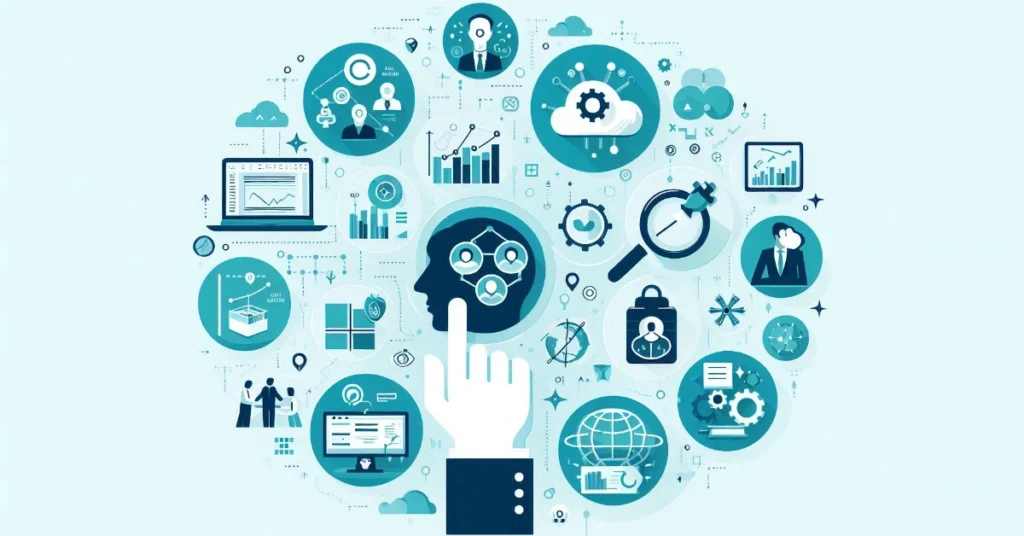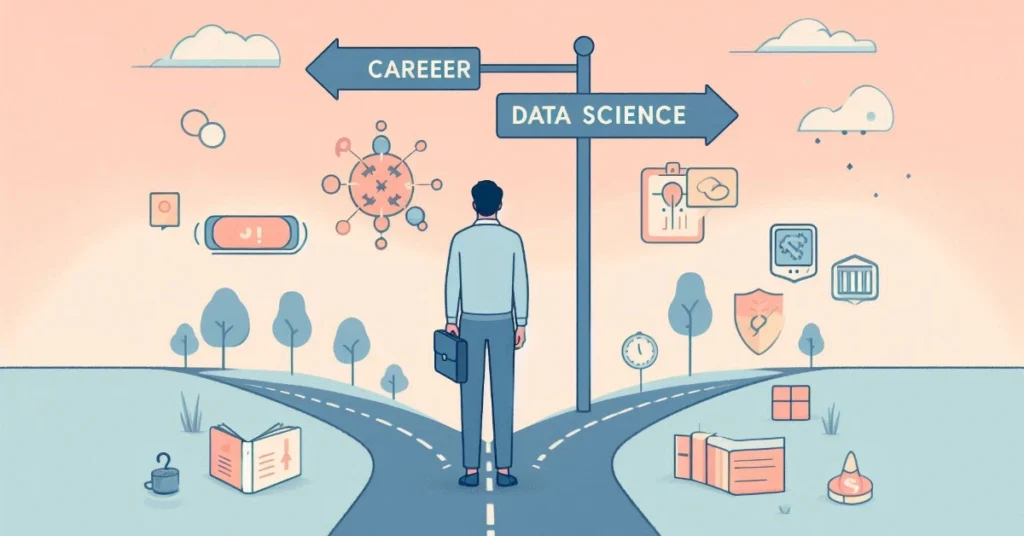Looking to switch your career to data science? Learn the top 10 simple ways to find transferable skills from your current job that can help you succeed in the data world!
Thinking about changing your career to data science? That’s a smart move Data science is one of the fastest-growing fields today. It’s all about using data to solve problems, understand patterns, and make smart decisions.
But here’s the good news you don’t have to start from scratch. No matter what job you’ve done before, you probably already have transferable skills. These are the skills you’ve gained in your old job that can help you in a new one.
This article is going to cover the 10 best ways to find those skills and help you feel confident about your big career change.
Also Read About : 9 Smart Ways to Use LinkedIn Recommendations

1. Look Back at What You’ve Achieved
Start by thinking about what you’ve done in your past jobs. Go beyond job titles—focus on real tasks and achievements.
Ask yourself:
- What big problems did I solve?
- What projects did I lead or support?
- Did I work with data, reports, or numbers?
For example, if you worked in sales and created weekly reports, guess what? That’s data handling! You already used basic data analysis, which is a key part of data science.
Helpful Tip: Write down 3 to 5 things you achieved in each job. Use strong action words like “organized,” “analyzed,” or “improved.”
2. Think About Your Problem-Solving Skills
Data science is like being a detective. You look at clues (data), spot patterns, and find answers.
Have you ever:
- Fixed a work issue by finding the root cause?
- Solved a customer complaint with a smart solution?
- Improved a process to save time or money?
If yes, then you already know how to think logically and solve problems just like a data scientist!

3. Remember When You Worked with Data
You don’t need to be a math genius to have worked with data. Maybe you:
- Used Excel to create charts
- Filled in and checked reports
- Analyzed survey answers
- Looked at customer behavior
All of this shows you’re comfortable with data. Even if it wasn’t “big data,” it’s still useful experience for a future in data science.
4. Communication Is a Superpower
It’s not enough to find answers—you need to explain them clearly.
Have you ever:
- Presented ideas or reports to your boss?
- Shared results in a meeting?
- Wrote a clear email to explain a tough topic?
Then you’ve got strong communication skills. These are key in data science because you’ll often share your findings with people who don’t speak “data.”
5. Any Tech or Coding Skills? That’s a Bonus!
Even if you’re not a programmer, you might already have some tech know-how.
Ask yourself:
- Do I know how to use Excel formulas?
- Have I tried basic coding or used tools like SQL or Python?
- Have I used data dashboards or created charts?
If you’ve done any of that, you’re ahead of the game. It also shows you’re ready to learn new tech skills, which is important in this field.
6. Your Industry Knowledge Matters
You don’t have to throw away everything you know! Your current job field is still helpful.
Examples:
- If you worked in healthcare, you understand patient data.
- If you were in marketing, you know customer behavior.
- If you were in finance, you’re good with numbers and reports.
This kind of domain knowledge helps you ask better questions and find better answers when working with data.
7. Project Management? Yes, That Counts!
Ever led a project or worked with a team on a big task? That’s project management, and it’s super useful in data science.
Think about when you:
- Managed deadlines and meetings
- Organized tasks for yourself or others
- Made sure projects finished on time
These show you know how to stay organized, work in teams, and get things done—skills that every data scientist needs.
8. Teamwork Makes the Dream Work
Data science isn’t a solo job. You’ll need to work with developers, managers, designers, and more.
Ask yourself:
- Have I worked on a team project?
- Did I share ideas and listen to others?
- Have I given or received helpful feedback?
If yes, then your teamwork skills are ready for the data world!

9. Ask Others What You’re Good At
Sometimes others see our strengths better than we do. Talk to:
- A coworker you trust
- A manager or team lead
- A mentor or friend
Ask:
- What do you think are my top skills?
- What tasks do I do really well?
- Where else do you think I could use my skills?
They might point out skills you didn’t even think about!
10. Match Your Skills to Data Science Jobs
Now that you’ve listed all your skills, compare them to real data science job descriptions.
Here’s a simple table to help you connect the dots:
| Your Skill | How It Helps in Data Science | Data Science Job Examples |
|---|---|---|
| Made reports from sales data | Shows you can collect and explain data clearly | Data Analyst, Business Analyst |
| Managed team projects | Proves you can plan, organize, and lead tasks | Data Science Project Manager |
| Gave presentations to bosses or teams | Means you can explain results in a way people understand | BI Analyst, Data Storyteller |
| Used Excel for data sorting | Basic data handling skill, a great start before learning Python or SQL | Entry-Level Data Analyst |
| Studied customer behavior in marketing | Shows domain expertise that helps build models and insights in customer-focused roles | Marketing Data Scientist, Customer Insights Analyst |
| Solved technical problems | Proves you have critical thinking and can work through systems and errors | Data Engineer, Machine Learning Technician |
This helps you build a strong resume and cover letter and feel confident in interviews.
Quick Recap What You Learned:
- Transferable skills come from your past job—even if it wasn’t in tech.
- You probably already have skills like data handling, problem-solving, or teamwork.
- Domain knowledge (like marketing or healthcare) is a big bonus.
- Talk to others and research job posts to match your skills with real roles.
- Practice showing your skills on your resume and during interviews.
Also Read About : Best 15 ways to research company culture before applying for a job online
FAQs (Frequently Asked Questions)
What are transferable skills?
Transferable skills are things you’ve learned from past jobs or life that can help in new careers. They include things like teamwork, problem-solving, and communication that work in many fields.
Why are transferable skills important for moving into data science?
They show you already have useful abilities, even if you haven’t worked in data science before. These skills help you learn faster and fit better into new roles.
Can I become a data scientist without a tech background?
Yes, you can! If you’re good at thinking through problems and working with numbers or people, you’re off to a great start. You can always learn the tech part step by step.
What data science jobs can I get with transferable skills?
Depending on your background, you can try roles like data analyst, business analyst, or marketing data scientist. These jobs need your current skills plus a little extra learning.
How can I show my transferable skills on a resume?
Use real examples from your old jobs that match data science work. Try to show results and use action words like “analyzed,” “led,” or “organized.”
Final Thoughts
Switching careers to data science might feel scary but you’re not starting at zero. By following these 10 steps, you’ll uncover powerful transferable skills from your current or past job.
These skills like problem-solving, communication, or teamwork are super valuable in data science. You just need to recognize them and show how they fit.
Believe in your background and keep learning. The world of data science is waiting for someone just like you!